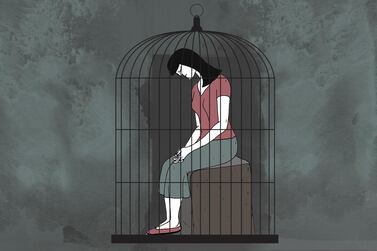The UAE's new insolvency law – set to go live in January – will help those struggling with chronic debts by decriminalising their liabilities and allowing them to either settle their financial obligations through a court-approved payment plan or insolvency and the liquidation of their assets.
But how does it all work? And how do you register at the courts to have your case heard? Here, The National guides you through the process set out by Ministry of Finance, explaining how you qualify, the documents you need and the implications of not sticking to the decision made by the courts.
What are the options if you are in debt?
The Federal Decree-Law on the Insolvency of Natural Persons is different to the bankruptcy law of 2016 as it applies to individuals rather than companies. The proposed law offers debtors two ways to solve their financial struggles: either they settle their debts financially by devising a repayment plan through a court-appointed expert that allows the debtor to repay their dues while still working, or they can liquidate their assets to repay their creditors.
How does an individual qualify for a repayment plan?
The debtor must approach the local court in the emirate they live in, such as Abu Dhabi Courts for an Abu Dhabi resident. To be eligible, they must either be about to miss a debt repayment or have missed repayments in the last 40 days. They must then nominate an expert to undertake the proceedings.
What documents do they need?
A description of their financial status including documentation on their sources of income, inside and outside the country, and their employment status. They must also supply a list of their creditors (with names and addresses) as well as a detailed statement of their assets inside and outside the country and any legal or judicial proceedings already filed against them. Other considerations include a budget of how much they need to support their dependents and details of any financial transfers outside the country.
How long does a case take?
The court will make a decision within five working days from the date the application is submitted. If it accepts the request, it will then open the procedure for the financial settlement. The court can reject an application if the debtor hands over false statements or has not paid their debts for more than 40 consecutive working days.
When does the expert get involved?
The court appoints one or more experts to assist the debtor. The expert will prepare a plan with the debtor and then provide the creditors with a copy and lodge another copy with the court within 22 days – which can be extended by the court if needed.
The expert will then invite the debtor and the creditors to meetings to discuss and vote on the plan with the first meeting held within 10 days of the creditors receiving a copy of the repayment plan. The debtor and creditors must attend meetings in person, or send someone authorised on their behalf.
How long does the agreed repayment plan last?
The plan cannot exceed three years from the date it is ratified by the court, however, amendments can be made at a later date if the expert requests it.
Can a financial settlement be terminated?
Yes, for a number of reasons including if the court finds the financial obligations cannot be settled or if the debtor ceases to pay any of their debts for more than 40 consecutive working days. It can also be cancelled if the debtor fails to follow the plan or if the plan expires without the debts being settled.
The other option is insolvency and liquidation of the debtor’s assets. How does this work?
A creditor or a group of creditors can apply for insolvency if the debtor owes more than Dh200,000 and cannot solve their issues through a repayment plan. The court will then appoint a secretary to handle the liquidation. They will deliver a report within 10 working days, with the court decision on liquidation of assets decided within 15 days from the report’s delivery.
What assets would a debtor have to sell?
They include property, cars, financial holdings or valuable possessions such as paintings. Funds that are exempt from liquidation procedures include pensions or social benefits and funds needed to cover everyday living costs for themselves and their families.
How long does the process take?
The debtor will be given up to three months to liquidate their assets. Once the distribution of the debtor’s funds to creditors is complete the court will issue a decision to close all liquidation procedures. This includes a list of the names of creditors whose debts are accepted, their amount and what has been fulfilled, which will be published in two local daily newspapers, one in Arabic and the other in English.
How does the liquidation result affect the debtor?
They cannot take on any more credit for three years from the date of insolvency and their name will be listed in a Special Register.
When is the insolvent debtor considered rehabilitated?
Once the three years are up and they have repaid their debts, they can return to normal life and access credit again. This period can be shortened if they pay a substantial sum towards their dues or clear their debts entirely. A debtor is also in the clear if they die.
Are there any penal fines under the insolvency law?
Yes, there are fines of between Dh10,000 to Dh100,000 for creditors for crimes such as sham claims against a debtor or increasing debts illegally.
For debtors, there are fines of between Dh20,000 and Dh60,000 and possible imprisonment if the debtor spends large sums of money that do not match their “turbulent financial situation” knowing that their creditors will be adversely affected.
They can also be penalised if they pay off the debts of one creditor, which then affects the chances of others recovering their money or if they deliberately sell their assets for less than their market value.
What about bounced cheques? Are they now decriminalised?
Bounced cheques are not decriminalised but debtors with a court-approved payment plan can present this to a criminal court to have the case “frozen”.
Can absconders apply for insolvency from overseas?
Yes. Those with unresolved debts can ask a legal representative to file a request at the court on their behalf.










